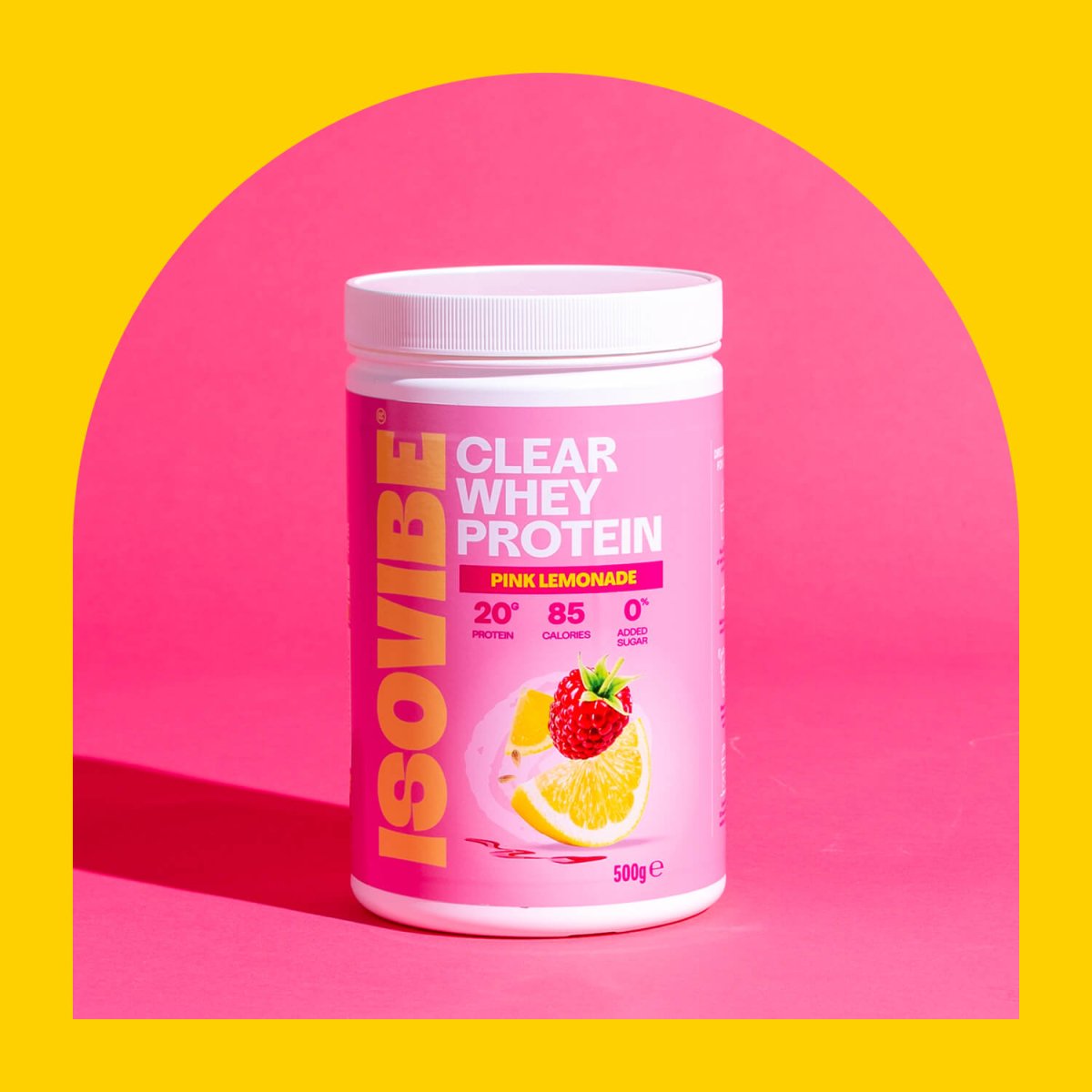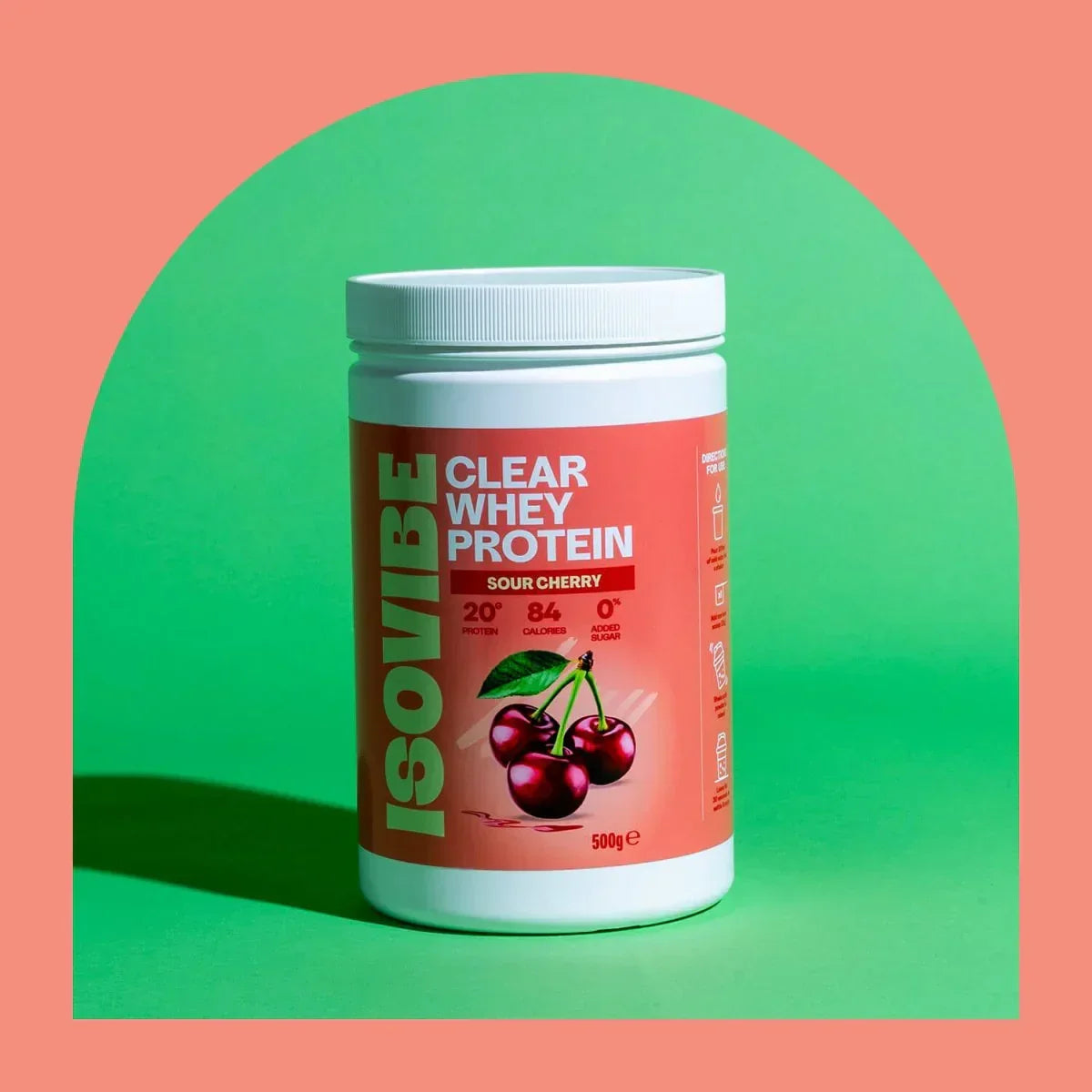Your Body's Relationship with Protein is Complicated: How to Make it Work Through Cycles, Pregnancy & Menopause
Understanding your protein needs is basically like understanding your relationship status - it's complicated, it changes constantly, and nobody prepared you for how dramatic it would be! Your protein needs at 25 are a totally different universe from 35. And 55? Your body's practically speaking a different language.
Think about it: you're absolutely crushing it in your twenties, bouncing back from everything with just a protein smoothie and some decent sleep. Then boom - thirties hit and suddenly you're growing an actual human inside you who's apparently developed very strong opinions about what you're allowed to eat today. Fast forward to your forties and fifties, and your body's like "surprise! New rules, figure it out!"
Meanwhile, every nutrition guide out there is still acting like we're all the same person with the same needs, completely ignoring the hormonal soap opera happening inside us every single month. Your oestrogen and progesterone are literally having monthly meetings about your nutritional requirements, but apparently nobody got the memo.
So let's spill the real tea on how your female body actually works, why the guidelines are stuck in the past, and how to finally give yourself what you need at every wild, wonderful stage.
No Cookie Cutter Protein Advice For a Female Body, Please!
Ever notice that most protein advice was written with men in mind? You know, those lucky humans whose hormones stay pretty much the same all year round. Meanwhile, we're over here riding monthly hormonal waves that affect everything from how quickly we bounce back from spin class to why we're suddenly desperate for chicken Caesar salad at 3pm on a random Tuesday.
These hormonal rollercoaster rides change our protein needs too. While men can follow the same protein routine year-round, our bodies are constantly shifting gears - craving 5% more during certain cycle phases, needing extra support during pregnancy, and requiring strategic approach during menopause. Our appetite for protein literally fluctuates with our hormones in ways that male bodies simply don't experience.
Protein plays a critical role in supporting the body through various physiological transitions. It becomes especially important during phases such as premenstrual changes, shifts in metabolic rate, and the natural process of muscle loss with age. At times, the body requires higher protein intake; at others, the timing of consumption becomes key. Understanding these cyclical needs allows you to nourish your body with precision - providing exactly what it requires, when it needs it most.
Your Protein Needs Are on a Cycle Too
When progesterone rises during the second half of your cycle, it increases your metabolic rate and changes how your body processes certain amino acids. That sudden desperate need for Greek yoghurt with nuts or a massive steak around day 20? Your body's responding to increased demands for the building blocks that support this hormonal shift and higher energy needs, which explains why you might feel more tired during this time, or why yesterday's easy workout suddenly feels like you're moving through honey.
Once you understand this pattern, you can work with your cycle instead of fighting it. This is when light, refreshing proteins become your secret weapon - think fruity protein drinks instead of heavy meals, especially when your digestive system is feeling more delicate than usual.
What the Science Says
A study of 259 women found significant increases in total protein intake during the second half of their cycle (when progesterone peaks), with higher requirements for leucine (essential for muscle building), phenylalanine (needed for hormone production), and lysine (supports tissue repair).
Key Finding: Protein needs increase 5% during the second half of your cycle with higher requirements for specific amino acids that support muscle building and hormone production, though muscle protein synthesis rates remain consistent across cycle phases.
Sources:
-
Journal of Physiology: Menstrual cycle and muscle protein synthesis
Pregnancy Protein Drama: How to Win the Battle
Pregnancy makes your relationship with food the most complicated it's ever been! One minute you could demolish an entire rotisserie chicken, and the next minute even thinking about your favourite pre-pregnancy takeaway makes you want to hide under your duvet forever.
While your stomach is having daily tantrums, your body's protein needs are going through the roof. You're growing tiny fingernails and creating an actual human brain (casual!), which means fuelling not just your little one's development, but your body's transformation, increased blood volume, and structural changes happening inside you.
When even accidental food smells make you bolt for the bathroom, getting enough quality protein feels like mission impossible. Thank goodness for clear whey protein - your gentle pregnancy bestie that tastes like refreshing flavoured water but gives you the amino acids you and your baby are craving.
No thick, chalky nightmares when you're already feeling rough. No overpowering flavours having fights with your constantly changing taste buds. Just clean, gentle nutrition that actually plays nice with your dramatic pregnancy body.
What the Science Says
Recent 2024-2025 research reveals that pregnancy protein needs may be significantly higher than current UK recommendations suggest. While official guidelines recommend an additional 6g daily, cutting-edge metabolic studies show many women require substantially more.
Key Findings:
-
Optimal intake: Recent meta-analysis suggests 12% of total energy intake from protein may be optimal for healthy foetal development
-
Inadequate intake widespread: Studies show 12.1-12.8% of pregnant women in second and third trimesters consume below recommended levels
-
Quality matters: Research confirms that animal-source proteins (like whey) account for approximately 66% of total protein intake and provide superior amino acid profiles
-
Long-term impact: Maternal protein intake during pregnancy shows direct association with child growth up to 5 years of age
The Bottom Line: Current protein requirements of 10-20% of total energy intake during pregnancy support both maternal health and optimal fetal growth, with higher-quality sources like clear whey protein offering the most efficient way to meet these increased needs.
Sources:
-
British Journal of Nutrition 2024: Maternal protein intake and child growth (ROLO study)
-
BMC Public Health 2024: Systematic review of macronutrient intake during pregnancy
-
Nutrition & Metabolism 2024: Protein intake and birth weight outcomes
Protein Boost During Menopause
Can we talk about menopause for a hot minute? This is when protein becomes more crucial than ever, not less important.
It’s because at this stage your body starts breaking down protein faster due to hormonal changes, particularly estrogen loss. This creates the "Protein Leverage Effect" - basically, your body's desperately craving more protein, and if you don't give it what it needs, you'll end up eating more of everything else, leading to weight gain and muscle loss.
Here's your new action plan: increase your protein concentration from 16% to 17-19% of your daily intake (that's from 1.0g to 1.2g per kg body weight).
Your muscles matter at this stage, and protein concentration is their best friend. When you give your body the protein percentage it's asking for, you satisfy that protein appetite without overconsuming carbs and fats. The right protein approach can prevent weight gain, preserve muscle mass, and keep your metabolism firing on all cylinders.
What the Science Says
Research shows that hormonal changes during menopause lead to enhanced protein breakdown in muscle and bone tissue. The Protein Leverage Effect explains how insufficient dietary protein concentration drives overconsumption of non-protein energy sources, resulting in weight gain.
Key Finding: Increasing dietary protein concentration by just 1-3% can prevent or reduce menopausal weight gain. Small adjustments – from 16% to 17-19% protein concentration – help meet protein targets without excess energy consumption, countering the enhanced protein breakdown caused by estrogen loss.
Sources:
-
King’s College London: Why do we lose muscle mass as we age and what can we do to mitigate this?
-
BJOG: An International Journal of Obstetrics & Gynaecology – Wiley Online Library: Weight gain during the menopause transition: Evidence for a mechanism dependent on protein leverage – Simpson – 2023.
Your No-Fuss Protein Strategy: Making It Actually Work in Real Life
Let's get proper practical here! Understanding all this science is brilliant, but what you really need are strategies that fit into your actual, real life – the one with work deadlines, social plans, and the occasional day where meal prep feels like climbing Everest in heels.
If You're Cycling: Watch your own appetite patterns! Keep it super simple – just pop a quick note in your phone for a month. When are you absolutely craving protein? Most of us notice that protein appetite spikes around day 20-25. Stock up on easy wins: Isovibe sachets for your handbag, Greek yoghurt for midnight fridge raids, nuts for desk drawer emergencies.
If You're Pregnant: Give yourself the biggest permission slip to keep things beautifully simple. If chicken makes you feel green around the gills, absolutely don't force it! Clear whey mixed with whatever fruit sounds appealing can be such a gentle way to hit your increased protein needs. Scatter protein snacks literally everywhere – your car, desk, handbag, bedside table. Think of protein as medicine for growing your miracle baby, not another thing on your overwhelming to-do list.
If You're in Menopause: Your first meal of the day is your protein King (or Queen)! It might be a protein smoothie that tastes like pudding, Greek yoghurt with all the gorgeous toppings, or clear whey stirred into your morning routine, whichever way you choose, get those 30-50g sorted early doors. Then aim for 20-25g at lunch and dinner.
Don’t strive for perfection. It's about progress that feels good. Small, consistent changes that honour exactly where you are in your life and cycle will always beat those dramatic overhauls that last about two weeks before you burn out completely.
Your Protein Questions Answered
How much protein do women actually need? It depends on your life stage! Generally 1.2-1.6g per kg body weight for active women, but this increases to 1.0-1.2g per kg after menopause. During pregnancy, you might need more than the standard recommendations suggest.
Does my protein intake need to change during my cycle? Yes! Your body naturally craves about 5% more protein during the second half of your cycle when progesterone rises. Those pre-period protein cravings? Your body knows what it's doing.
Is protein powder safe during pregnancy? Clear whey protein can be excellent during pregnancy as it's gentle on sensitive stomachs and provides complete amino acids. Always chat with your healthcare provider first about any supplements.
What's the difference between whey and clear whey? Clear whey isolate removes most of the lactose and fat, making it easier to digest and much lighter. It tastes like flavoured water instead of a milky shake – perfect when you're feeling sensitive.
When's the best time to have protein? For menopausal women, aim for 30-50g with your first meal. For everyone else, spreading 20-25g throughout the day works well. Listen to your body's natural appetite patterns.
Can protein help with PMS symptoms? Stable protein intake can help balance blood sugar, which may ease mood swings and energy crashes. Plus, honouring those luteal phase protein cravings often makes you feel better overall.
Why do I feel sick after protein shakes? Traditional protein powders can be heavy and hard to digest. Clear whey isolate is much gentler on your stomach, especially during hormonal changes when digestion can be more sensitive.
Can I overdose on protein? It's very difficult to have too much protein from food sources. Most women can safely have up to 2g per kg body weight daily. Your kidneys are pretty good at handling excess protein if you're healthy and drinking enough water.
Is meat protein different from plant and dairy protein? Yes! Animal proteins (meat, dairy, eggs) are "complete" proteins containing all essential amino acids. Most plant proteins are "incomplete" but you can combine different plants throughout the day to get everything you need. Whey (from dairy) is particularly rich in leucine, which is great for muscle building.
How do I know if I'm getting enough protein? Pay attention to your energy levels, recovery after workouts, and appetite patterns. If you're constantly craving protein or feeling tired, you might need to increase your intake.
For more details, head to our article on how to cycle syncing your protein to fuel energy and mood through each phase.




